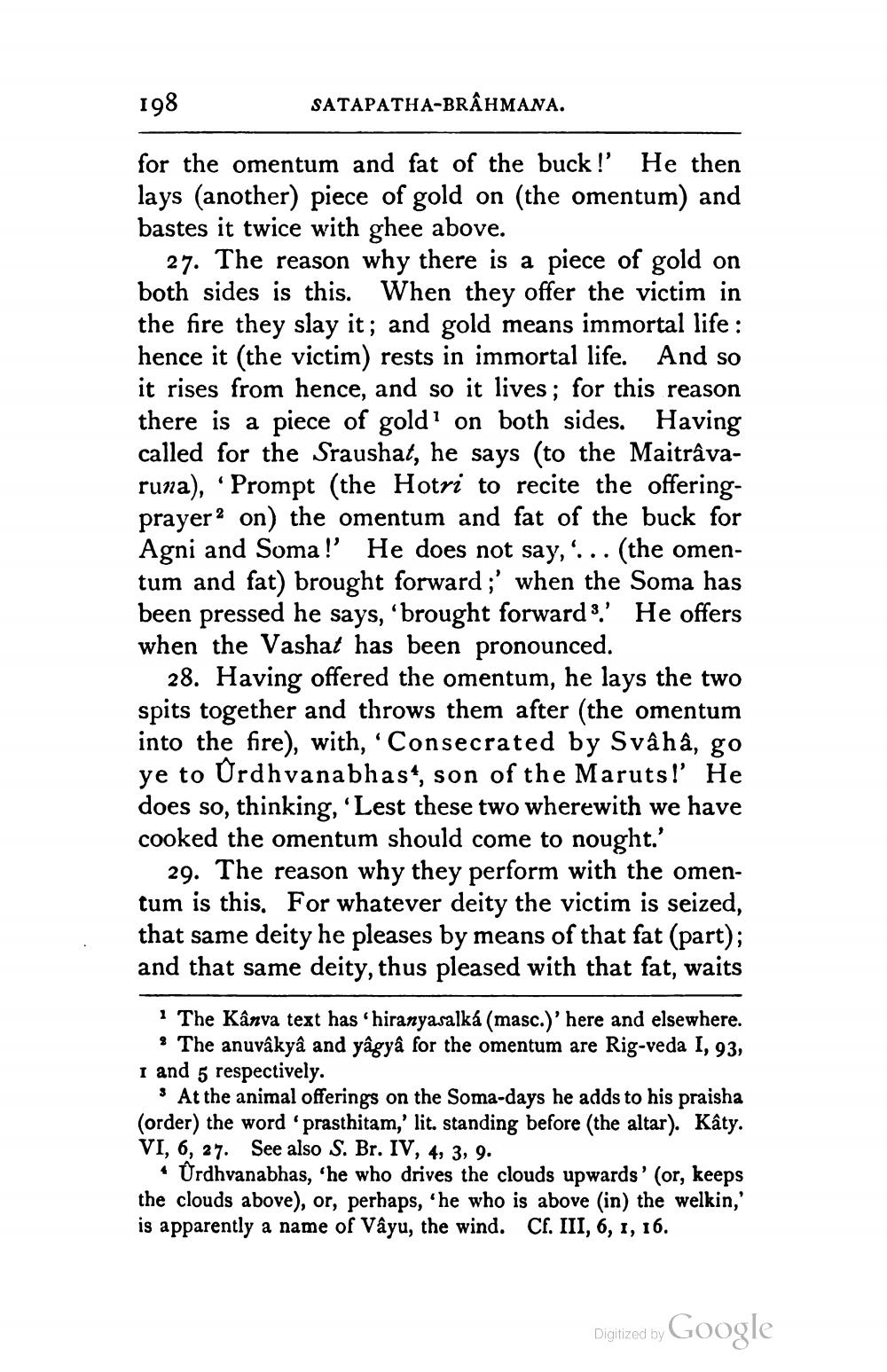________________
198
SATAPATHA-BRAHMANA.
for the omentum and fat of the buck!' He then lays (another) piece of gold on (the omentum) and bastes it twice with ghee above.
27. The reason why there is a piece of gold on both sides is this. When they offer the victim in the fire they slay it; and gold means immortal life: hence it (the victim) rests in immortal life. And so it rises from hence, and so it lives; for this reason there is a piece of gold on both sides. Having called for the Sraushat, he says (to the Maitrâvaruna), 'Prompt (the Hotri to recite the offeringprayer? on) the omentum and fat of the buck for Agni and Soma!' He does not say,'... (the omentum and fat) brought forward ;' when the Soma has been pressed he says, “brought forwards.' He offers when the Vashat has been pronounced.
28. Having offered the omentum, he lays the two spits together and throws them after (the omentum into the fire), with, Consecrated by Svâha, go ye to Urdhvanabhas“, son of the Maruts!' He does so, thinking, 'Lest these two wherewith we have cooked the omentum should come to nought.'
29. The reason why they perform with the omentum is this. For whatever deity the victim is seized, that same deity he pleases by means of that fat (part); and that same deity, thus pleased with that fat, waits
· The Kânva text has ‘hiranyasalká (masc.)'here and elsewhere.
9 The anuvâkyâ and yâgyâ for the omentum are Rig-veda I, 93, I and 5 respectively.
At the animal offerings on the Soma-days he adds to his praisha (order) the word 'prasthitam,' lit. standing before the altar). Kâty. VI, 6, 27. See also S. Br. IV, 4, 3, 9.
Urdhvanabhas, 'he who drives the clouds upwards' (or, keeps the clouds above), or, perhaps, 'he who is above (in) the welkin, is apparently a name of Vâyu, the wind. Cf. III, 6, 1, 16.
Digitized by Google




